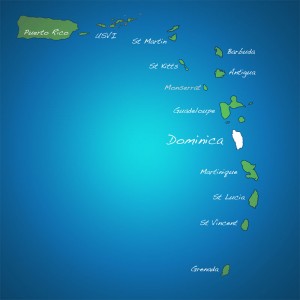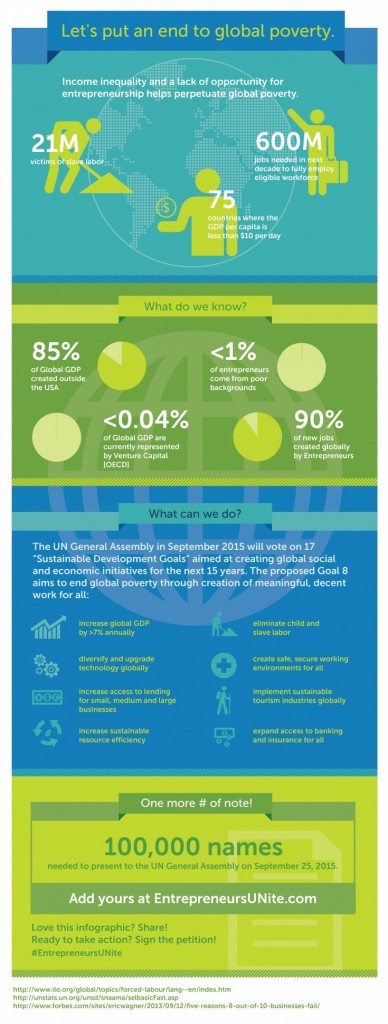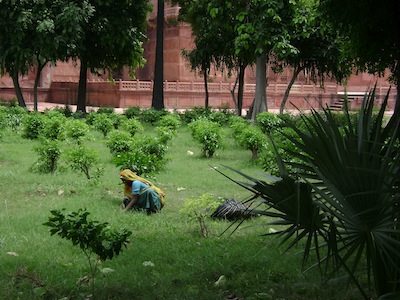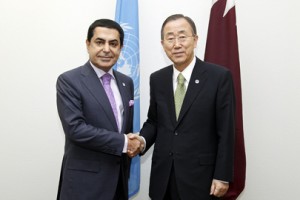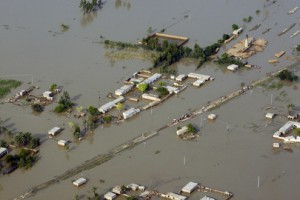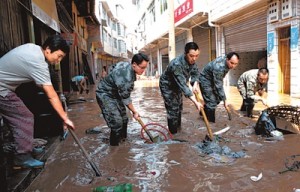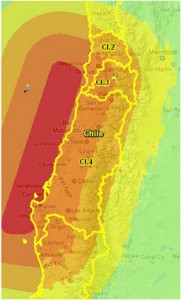Tropical Storm Erika inflicted substantial damage on the Caribbean island of Dominica, killing at least twenty people, washing away homes and eroding roads. Dominica is an island of pristine natural beauty, for which it was given the moniker of “The Nature Island”. Tropical rain forests cover over two-thirds of the island which, despite its small size, offers extraordinary ecological diversity, as the home to over 1,200 plant species. The lush vegetation is supported by rivers, lakes and waterfalls. Dominica’s Morne Trois Pitons National Park was the first UNESCO World Heritage Site in the eastern Caribbean. I first came to know Dominica and its beautiful people in connection with a project which becomes especially relevant in the context of a severe hazard, such as Tropical Storm Erika.
Last summer one of my graduate student interns, Alejandro Witschi, worked with me on a project on disaster risk reduction communications in the Caribbean region on behalf of the United Nations Development Program and the United Nations Office for Disaster Risk Reduction. Our work plan entailed consulting with the key stakeholders in the region: the national emergency management offices of sixteen Caribbean countries (including Dominica), regional partners and NGO’s, such as the the French Red Cross, Oxfam, Plan International, Save the Children, the Spanish Red Cross, UNICEF and World Vision International. The results of our work included a report we co-authored and I will quote here from page 2:
“The Caribbean region experiences multiple hazards: the region is prone to hurricanes, floods, flash floods, tsunamis, landslides and mudslides. Some islands experience earthquakes and volcanic eruptions. The physical risk is combined with socioeconomic factors, such as high population density, fast demographic growth, inequality and great poverty. The combination of these factors results in highly vulnerable communities, with few coping capacities in the event of disaster. Moreover, climate change is likely to negatively affect disaster trends in the region. In addition, the Caribbean region is at elevated risk owing to the highly concentrated impact of hazards on small and undiversified economies. So-called “SIDS” (or Small Island Developing States) are highly exposed to a range of hazards, but precisely because of their small size, a very large proportion of their total produced capital is at risk. The 2013 Global Assessment Report global risk model found, for example, that certain Caribbean countries could expect to lose more than 30 per cent of their value of their urban produced capital to the wind damage caused by a catastrophic, one-in-250 year cyclone. SIDS are among the countries that contribute the least to carbon emissions but are at risk for the greatest losses due to climate change, including disaster losses, that are projected to increase.”
In addition to contributing to disaster relief organizations, we can support Dominica’s recovery by paying a visit as the economy is largely dependent on tourism. The tourism ministries of Dominica’s Caribbean neighbors have donated vacation packages to online charity auctions to raise needed funds for disaster relief. You can find them using the various Internet search engines. UPDATE (October 1): Dominica is supporting a social media campaign which aims to show how areas previously devastated by Erika have been restored, showing the progress of the reconstruction. The government is offering prizes to the winning photographers.
